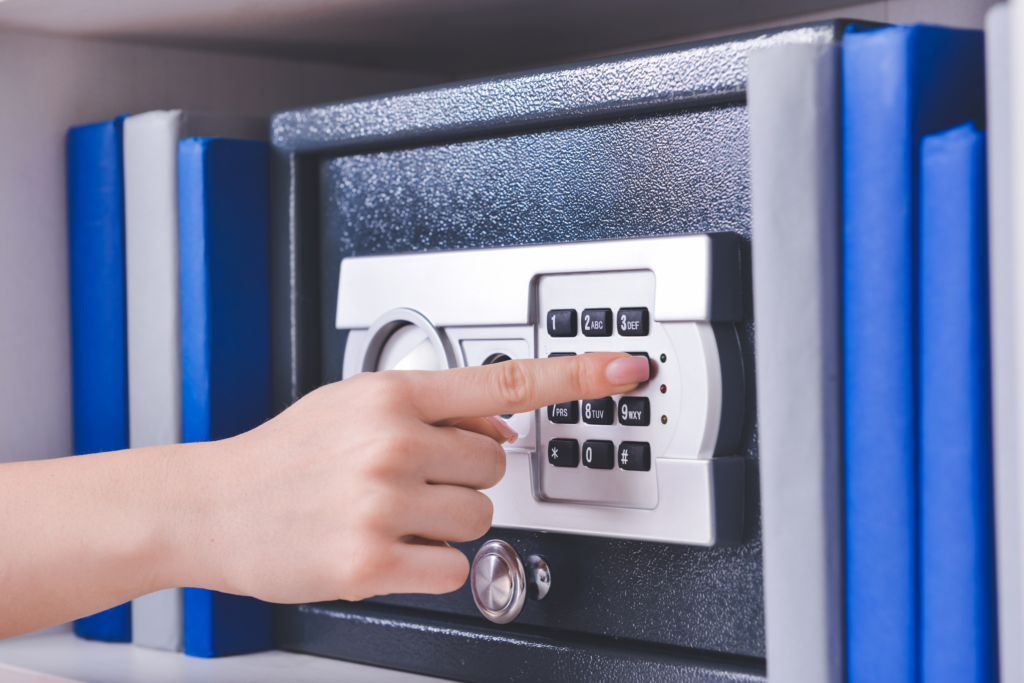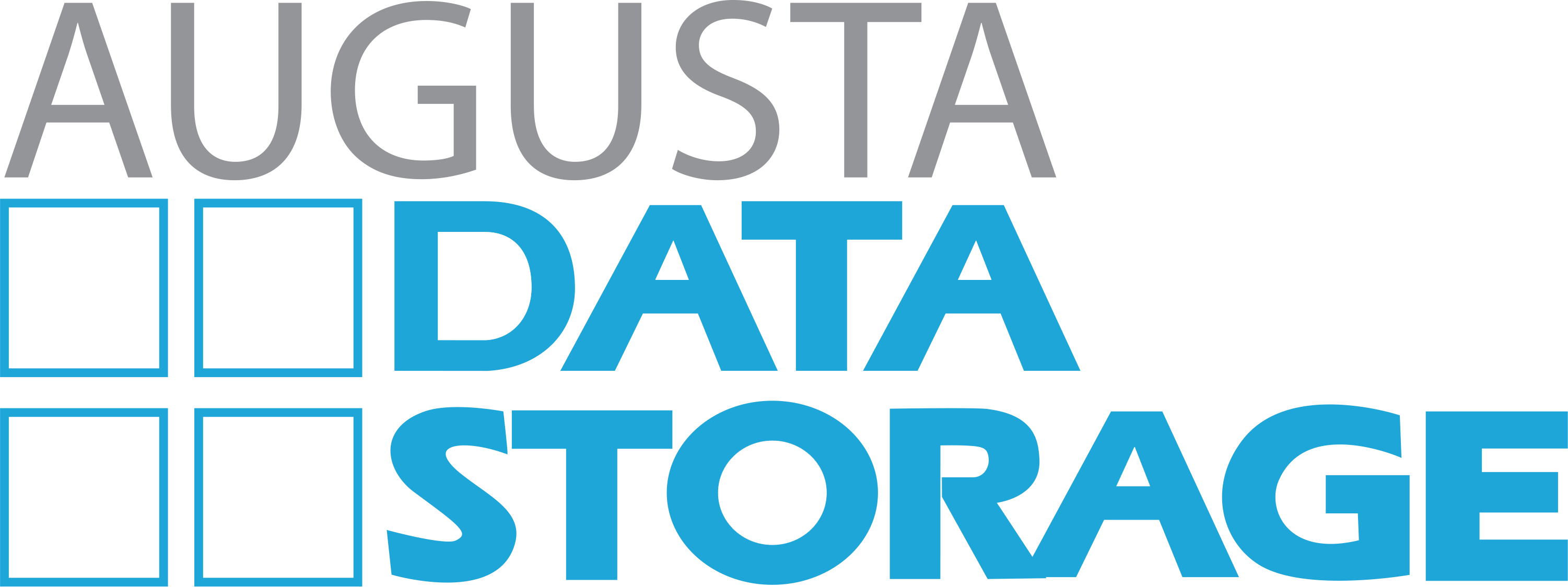Records Storage for Personal Use: Organizing Your Life and Protecting Your Information

In today’s digital age, where data breaches and identity theft are all too common, safeguarding personal information has never been more critical. But what about those physical documents lying around your home or office? Those old receipts, bank statements, or tax forms that you no longer need? You might be surprised to learn that these seemingly harmless pieces of paper can become a gold mine for identity thieves if not handled properly.
If you have been saving and storing records for years and have never taken the time to purge and organize your personal records, now might be the time.
Benefits of Records Management for Personal Documents
Properly storing and shredding personal documents not only helps organize your life but also offers valuable security benefits. It’s a simple habit with significant positive impacts.
Personal Organization Benefits
- Reduces Clutter: Sorting and clearing out unnecessary documents minimizes clutter, creating a more organized workspace.
- Easy Document Management: With fewer papers, managing and finding important documents becomes effortless, saving time and reducing stress.
- Enhances Productivity: A clean and organized space boosts productivity. Shred unnecessary personal documents to focus on what matters, improving efficiency and effectiveness.
Security Benefits
- Prevents Identity Theft: Personal documents often contain sensitive information like social security numbers, bank account details, and other data that could be used for identity theft. Shredding these documents ensures this information doesn’t fall into the wrong hands.
- Protects Personal Privacy: Storing and shredding documents helps protect your personal privacy. It ensures that your personal information remains confidential, preventing potential misuse.
- Professional, Secure Shredding: Professional shredding services provide an extra layer of security for your data. They ensure that your confidential documents are destroyed in a secure and controlled environment at a level that at-home shredders can’t guarantee.
Save or Shred?
If the thought of managing your personal records feels overwhelming, don’t worry—you’re not alone. Some common questions might come to mind — What documents do you keep? How long should you store them? Should you save or shred?
It can be tricky to know where to start. Here are some handy tips and advice to help you organize your personal records.
What Information Should You Protect?
As a rule, you’ll want to shred any document that has identifying information. More documents than you may expect include sensitive information, such as bank account numbers, your social security number, or medical information. According to the FTC, this includes:
- Sales and ATM receipts
- Bank statements
- Paystubs
- Credit card statements and credit offers
- Junk mail
- Utility and medical bills
For help deciding what to keep and what to shred, here are some general guidelines. Keep in mind that individual circumstances and local laws may vary, so it’s always a good idea to consult a professional advisor if you’re unsure.
Legal Documents: Keep birth certificates, adoption papers, marriage licenses, divorce decrees, death certificates, and wills indefinitely. They are hard to replace and may be needed for legal proceedings or identification.
Insurance Records: Keep policies in force for the duration of the policy. After it ends, shred the documents after 3-5 years, in case of late claims.
Financial Records: Keep bank statements for at least a year. Keep tax-related statements for at least seven years. Shred credit card statements after confirming charges and payment, unless they contain tax-related expenses. Follow the three-year rule for most financial records.
Tax Documents: Keep tax returns and supporting documents for a minimum of three years. Keep records for 7 years if filing a claim for loss from worthless securities or bad debt deduction.
Vital Documents: Keep passports, social security cards, and other identification documents indefinitely. They are often necessary for travel, employment, and government services.
Securing Your Personal Documents
Once you’ve decided which items to store, it’s time to consider how to best secure them. There are three popular ways to securely store your sensitive documents, but the method you should go with depends on the type of document you’re storing.
Here’s a general guideline for what secure documents to store in different storage mediums:
Online (Cloud Storage)
- Digital Copies of Important Documents: These could include scans or photos of your passport, driver’s license, social security card, birth certificate, and other identification documents. Just ensure the cloud service you use has strong security measures and encryption.
- Financial Records: Digital copies of bank statements, tax returns, pay stubs, and investment records can be stored in the cloud for easy access and backup.
- Medical Records: You can store digital copies of your medical history, prescriptions, and health insurance cards.
- Passwords: You can store passwords using a secure password manager that uses encryption.
Safety Deposit Box:
- Original Copies of Vital Documents: This includes birth certificates, marriage licenses, death certificates, passports, will titles, and more.
- Legal Documents: Original copies of your will, power of attorney, and property deeds should be kept here.
- Valuable Items: Expensive jewelry, family heirlooms, and collectibles can be kept in a safety deposit box.
Fire-proof Safe
- Emergency Cash: A small amount of cash for emergencies can be stored in a fireproof safe at home.
- Insurance Policies: Keep physical copies of your insurance policies and contact information for your insurance companies.
- Backup Data: Physical backups of digital data, like an external hard drive or USB stick, can be stored here.
- Passport and ID copies: It’s good to have copies of your identification documents in a quickly accessible place in case of emergency.
Secure Shredding for Personal Documents
Once you’ve decided which items to shred, you can prepare your documents for secure shredding. The most important aspect of this preparation is ensuring that your shredding option is truly secure, effective, and confidential.
Augusta Data Storage offers convenient drop-off shredding for guaranteed secure, controlled shredding in our professional shredding facility. Simply drop off your items and we’ll weigh, bill by the pound, and process them for destruction. We treat drop-off shredding documents with the same level of care and attention as we do for our scheduled and purge shredding services used by large businesses across the CSRA.
Plus, with our NAID-AAA Certified secure shredding process, you can rest assured that your information is safe throughout the destruction process.
Trust Augusta Data Storage for Your Personal Shredding Needs
Personal records management not only declutters your space but also safeguards your personal information. It’s a simple yet effective habit that greatly enhances your security and peace of mind.
However, ensuring secure and effective shredding can be challenging if done at home. That’s where Augusta Data Storage comes in. We offer convenient drop-off shredding services, guaranteeing secure destruction of your documents.
Our team treats every document with utmost care, providing the same level of attention and security as we do for large businesses across the CSRA. Trust us with your personal shredding needs for peace of mind.
Ready to secure your personal information and declutter your space? Contact Augusta Data Storage today for hassle-free document shredding.
